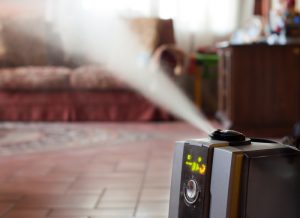 It may seem early still to be talking about this, but it’s good to think about now before you actually need the equipment to comfortably make it through winter. And we get it, if you have a fully functioning, efficient heater, you might think that’s all you need to get through a chilly winter.
It may seem early still to be talking about this, but it’s good to think about now before you actually need the equipment to comfortably make it through winter. And we get it, if you have a fully functioning, efficient heater, you might think that’s all you need to get through a chilly winter.
But a good furnace or heating system is only a small part of the equation when it comes to keeping your home as comfortable as possible in the winter. You’ll also want to consider your Lawrenceville, GA indoor air quality. Dry air can be not only uncomfortable—with our home heaters not helping the problem at all—but it can be unhealthy as well. If you’ve ever considered the installation of a humidifier, or even if you never have, now is the time to look into its benefits!
Why Is Low Humidity a Problem?
Of course, in order to truly understand the benefits of low humidity, you’ll want to first understand why low humidity is a problem anyway.
When temperatures drop as low as they do during the winter, the ambient moisture in the air shifts from gaseous to liquid form and departs the atmosphere. In the spring and summer, a drop in temperature creates dew on the ground in the cool hours of the morning. In the colder months, however, it makes the air as dry as can be.
We are most comfortable when the relative humidity levels (measuring the amount of moisture in the air) rest between 30-50%. When the level falls below the 30% range, we start to feel a number of unpleasant side effects, including:
- Dry skin. This leads to itching, rashes, and chapped lips. It might even crack your skin in really bad cases.
- Dry mucous membranes in our sinuses. This depletes one of your bodies’ primary means of fighting colds and illness, which is why colds are more prevalent during the winter months.
- Static electricity. This may not seem like a huge deal, but even without the sometimes humorous shocks family members give each other, static electricity makes some home tasks more difficult and could even lead to potential hazards.
In addition to these side effects, air that is too dry negatively impacts your heater as well. It forces it to work too hard since it usually feels colder in the house when the air is dry. Lastly, dry air can damage wallpaper and furnishings too, particularly during extended cold fronts.
A Whole House Humidifier Helps
You might already be familiar with portable humidifiers. They’re sometimes used to keep indoor plants moist, but most often seen in stores being marketed to parents to help their little ones get over wintertime illnesses. These are fine for those intended purposes, but for true home comfort, you’ll want to consider a whole house humidifier.
How does this work? A wick or pad is fed with water from a reservoir. A fan blows over the pad to release moisture vapor into the air, working in combination with your furnace to spread the moisture throughout your living space. As a result, the humidity levels go up and a lot of those side effects we mentioned are eliminated. A whole house humidifier can even help the air feel warmer, meaning you won’t have to run your heater as much.
